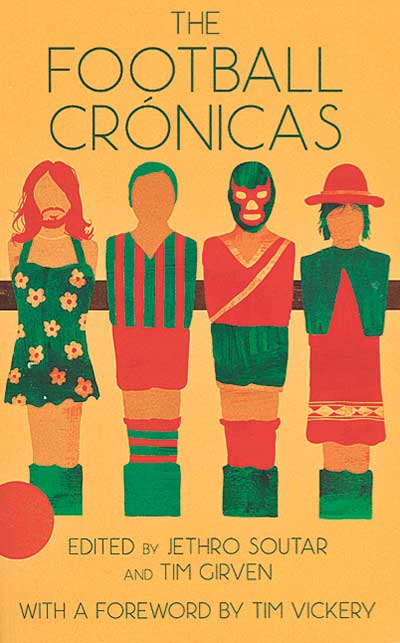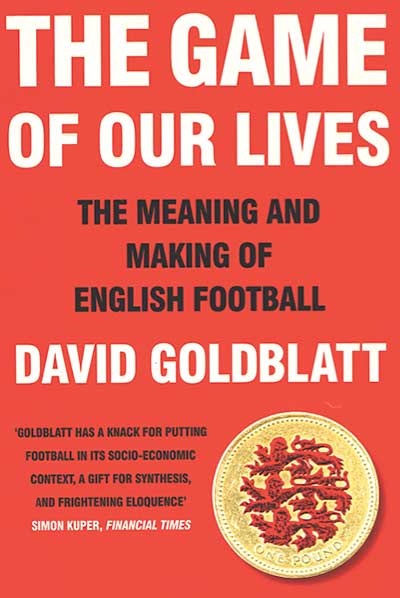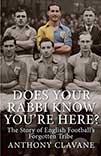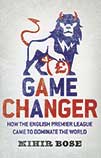 edited by Jethro Soutar
and Tim Girven
edited by Jethro Soutar
and Tim Girven
Ragpicker Press, £10
Reviewed by Nick Dorrington
From WSC 335 January 2015
The Crónica is a Latin American literary form, somewhat akin to the output of the new journalism movement of the 1960s and 1970s, in which the author involves themselves, to some degree, in the story. Written from a bold and engaging first-person viewpoint, it is a form that is the subject of a number of dedicated magazines across Latin America.
It is through the medium of the Crónica that this collection explores the football and society of a region in which a team bus is shown more deference than an ambulance in traffic, where villagers gather on a hillside to get the best possible signal for the radio broadcast of a match and where entire cities can be brought to a halt by an important fixture. These entries are supplemented by a book extract in similar style and three short stories.
The standard varies a little from piece to piece but the overall quality of both the writing and translation is to be applauded. Authors from across South America, plus two from Mexico, have been included, writing on subjects as varied as a prison team in Argentina, a Latino immigrant league in New York and a team of transvestites in Colombia. The rare missteps occur when the focus is on well-known subjects such as Alcides Ghiggia or Romário.
One of the most interesting entries is by the Peruvian writer Marco Avilés. It tells the story of the women’s football team of a high Andean village where no Spanish is spoken and the comforts of modern society are not to be found. The women travel down to the nearest developed city to take on the local team in a match that Avilés bills as a battle of ojotas (rustic flip-flops) versus trainers; ancient tradition against globalisation.
The changing face of football is masterfully described in a wry short story about an elderly man denied access to a stadium due to his failure to produce a shop loyalty card. “Purchasing power is all that matters,” a steward tells him as the man fruitlessly describes the various triumphs and defeats he has witnessed in his many years in the stands.
The best pieces in the collection are those about people who for one reason or another stand on the margins of mainstream society. We sometimes forget that football, in its most basic form, can act as a unifier for communities, or provide a platform for those whose voice is rarely heard. This theme is beautifully summarised in the final entry, a short story by Vinicius Jatobá that provides a fictionalised account of the genesis of Brazilian football and the emergence of Leônidas da Silva in the docks of Rio de Janeiro.
Laced with local patois and references to the art, food and history of the region, the book is, at times, a challenging, even daunting read. Explanatory footnotes would have been a welcome addition. Yet it is still an enlightening and ultimately rewarding excursion into the football and culture of Latin America.
 The meaning and making of English football
The meaning and making of English football The story of English football’s forgotten tribe
The story of English football’s forgotten tribe How the English Premier League came to dominate the world
How the English Premier League came to dominate the world